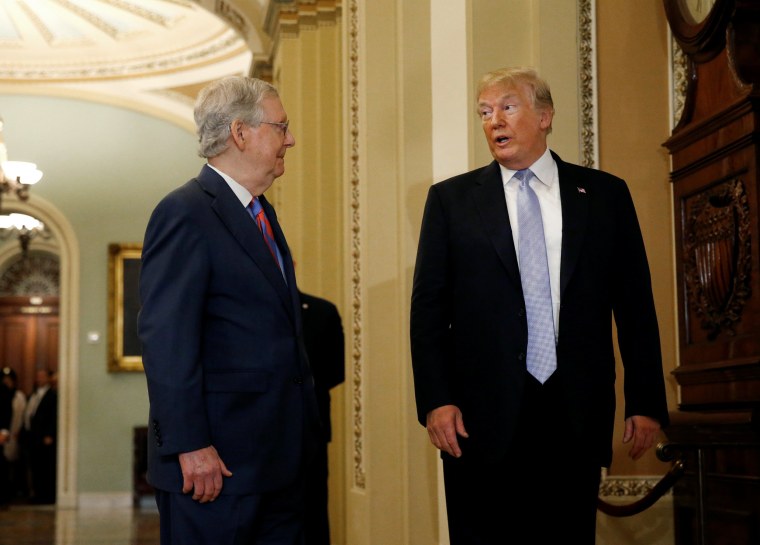Donald Trump had only been in the White House for about six months when he started making declarations about the way in which the Senate tried to function. "The very outdated filibuster rule must go," the then-president declared via Twitter in July 2017.
Soon after, the Republican described the filibuster rule as "ridiculous" and "stupid," pleading with GOP senators to "get rid of" the 60-vote requirement. By June 2018, Trump was privately telling his congressional allies that keeping the filibuster in place could mean "the end of the party."
As Ed Kilgore noted, the former president has apparently changed his mind.
We have some good news for unity-craving Republicans: Donald Trump and Mitch McConnell are now on the same page with respect to one of the more important topics of the day. During a new podcast interview, the former president said "it will be catastrophic for the Republican Party" if Democrats ended the filibuster, and he seemed to back McConnell's efforts to prevent that from happening.
Imagine that. When Trump saw partisan value for himself, he feared the Republican Party might die if the filibuster rule remained in place. Now that voters have rewarded Democrats with power, the former president believes the Republican Party might die unless the filibuster rule remains in place.
To be sure, this isn't exactly surprising. No one has ever accused Donald J. Trump of being a man of deeply held principles. The next time Republicans have the reigns of federal power, he's likely to reverse course again, indifferent to appearances.
But in practical terms, that's partly what makes Democratic reform efforts so notable: they're proposing permanent institutional changes that would alter the way the Senate functions, not just now for their own benefit, but in the future, regardless of which party is in control.
It's a position predicated on the simple idea that the Senate should be a majority-rule institution -- as it was designed to be and as it used to be before the routinization of abuses.
In other words, while Trump offers an example of unprincipled hypocrisy, Democratic reform advocates are pushing a more responsible approach.

